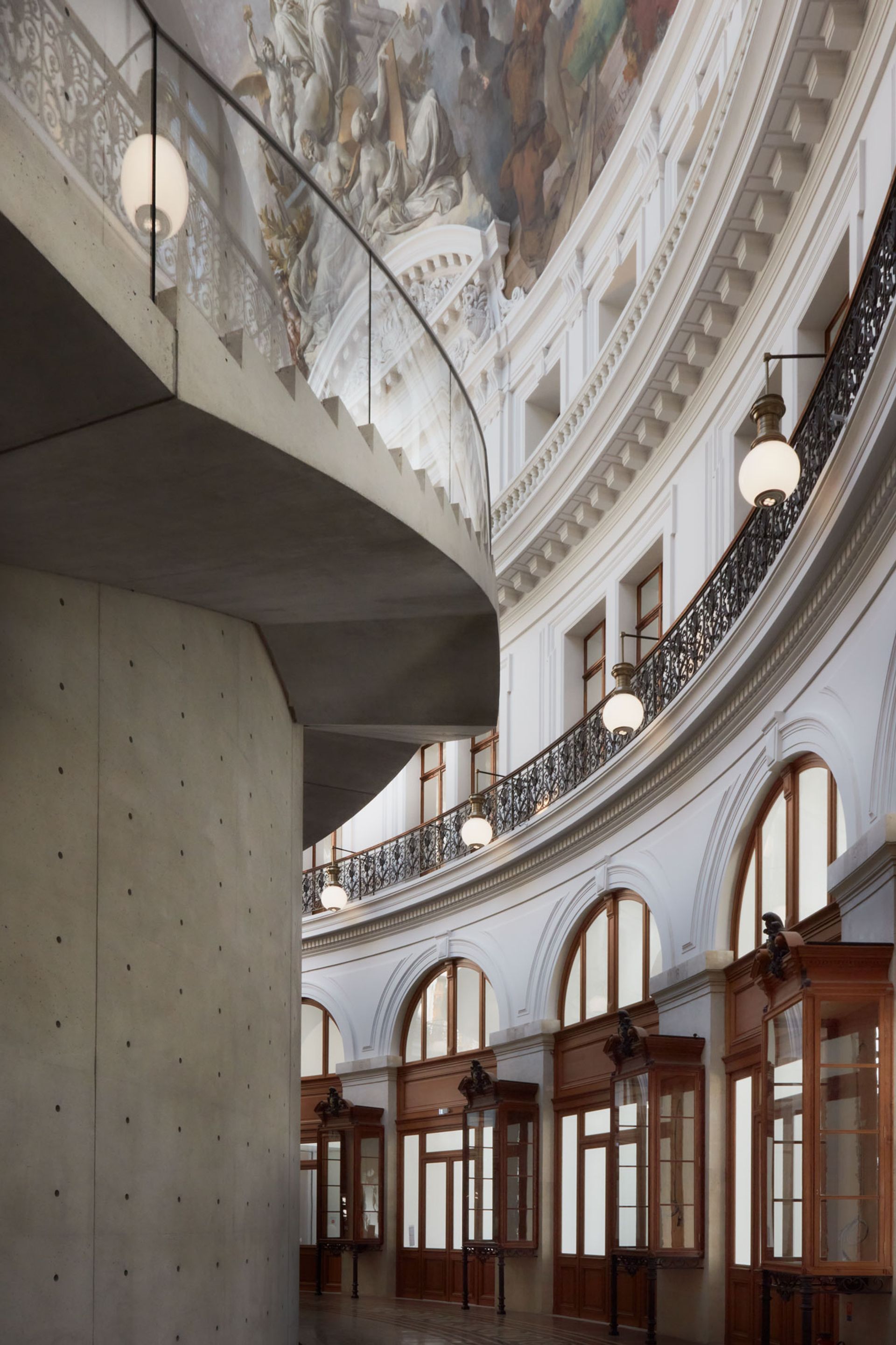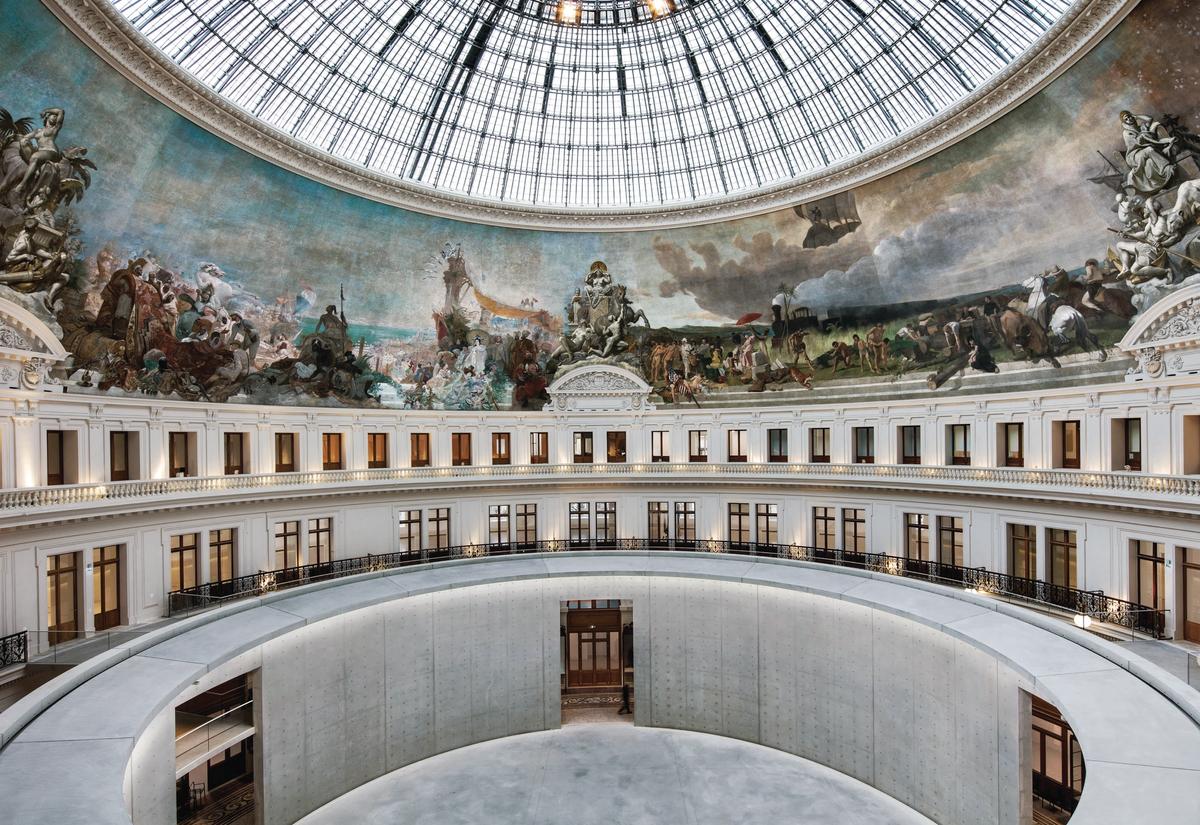At 84, the billionaire François Pinault will finally realise a 20-year plan to build a private museum for his contemporary art collection in Paris. France’s third-richest man is poised to open the Bourse de Commerce-Pinault Collection just two blocks away from the Musée du Louvre on 23 January—as long as pandemic restrictions allow.
The project’s progress has not been smooth. Back in 2000, Pinault scoped out a first location on Île Seguin, a narrow island tucked in a tight loop of the river Seine. By 2005, however, the €150m project for Japanese architect Tadao Ando to convert a former Renault factory into a museum was ensnared in administrative gridlock. The site required significant decontamination and the construction of new bridges.
Pinault regrouped in Venice with Ando and his right-hand man, the former culture minister and director general of the Pinault Collection, Jean-Jacques Aillagon. The result was two Venetian museums: Palazzo Grassi and Punta della Dogana, opened in 2006 and 2009 respectively.
Several years passed before Aillagon got word that a magisterial Paris site was available: the Bourse de Commerce, an 18th-century grain exchange. This historical monument was always going to chime more harmoniously with Pinault’s ambitions than a disused car factory. But the redevelopment has come with its own hurdles.
Ando’s elegant restoration of the circular building’s original volumes—with the addition of a giant upright cylinder beneath the great cupola—was delivered on schedule. Yet the final phase of furnishing and installation, and the opening, has been repeatedly delayed, most recently by the Covid-19 pandemic.

Japanese architect Tadao Ando has elegantly restored the circular building’s original volumes—with the addition of a giant concrete cylinder in the rotunda Photo: Maxime Tétard, Studio Les Graphiquants, Paris
Launching an art institution post-Covid is no small feat—in May 2020, an International Council of Museums survey estimated that nearly one in three museums will downsize, and more than one in ten may be forced to close permanently as a result of the pandemic. What impact did the crisis have on Pinault’s plans?
“Pinault decided that our opening exhibition had to be as serious as the situation in which we find ourselves”Jean-Jacques Aillagon, director general, Pinault Collection
“It gave us time to think,” Aillagon says. “Gauging the extent to which people have suffered and the world at large has been affected by this pandemic, Pinault decided that our opening exhibition had to be as serious as the situation in which we find ourselves.” While Aillagon will not be drawn on the details, he says the theme will be resolute openness: humility, hospitality, questioning oneself and taking risks.
In a recent interview, the Bourse de Commerce’s director, Martin Bethenod, argued that the Pinault collection is “porous” to the world and the issues of our time, be they “political, social, gender-based, racial or post-colonial”.
Aillagon describes “openness” and “radicality” as trademarks of Pinault’s taste, evident in the works he has acquired by artists such as David Hammons and Paulo Nazareth. As part of his aim to open up the collection as much as possible, his team is preparing an array of extracurricular exhibitions over the next six months, including Henri Cartier-Bresson at the Bibliothèque National de France and Jeff Koons at the Mucem in Marseille.
The Bourse de Commerce will also take a collegiate approach to Paris art institutions. Pinault’s vision is for the museum to collaborate with its public counterparts through loans and joint exhibitions, while growing the collection through site-specific commissions and, it is hoped, nurturing untapped audiences.
The Bourse de Commerce’s arrival represents “a kind of accelerator: it is positive disruption”, Aillagon says. Pinault and Bernard Arnault, the billionaire chief executive of luxury giant LVMH and founder of the Fondation Louis Vuitton, have already shifted the French cultural landscape towards more American-style philanthropy, aided by the 2003 law Aillagon introduced to incentivise individual and corporate patronage with generous tax deductions.
If Brexit displaces the financial centre of Europe from London to Paris, could it have a similar effect on the art world? “We certainly hope Paris will experience a period of great activity,” Aillagon says. “And the Bourse de Commerce, of course, plans on playing its part very, very willingly.”
- UPDATE: The inauguration of the Bourse de Commerce-Pinault Collection is on hold after the


